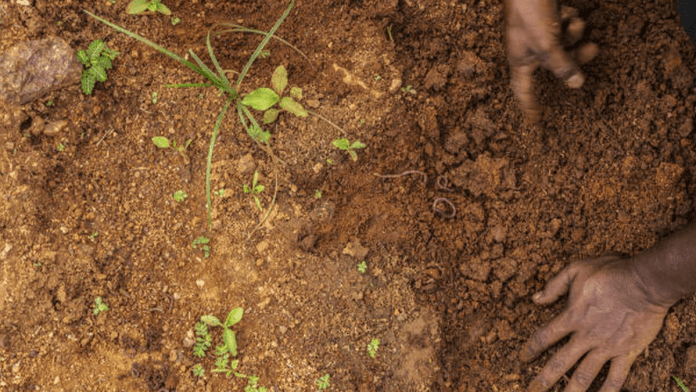News in brief:
– Nigeria and IFAD distributed farming inputs to 619 farmers in Nasarawa State, aiming to enhance food security and empower farmers for dry-season cultivation.
– The initiative provides improved rice seeds, fertilisers, and herbicides, aligning with government efforts to address rising food prices and inflation.
In a collaborative effort to boost food security and support dry-season farming, the federal government of Nigeria (FGN) and the International Fund for Agricultural Development (IFAD) distributed farming inputs to 619 farmers in Nasarawa State.
The initiative targeted farmers across four local government areas: Lafia, Doma, Nasarawa, and Karu. Speaking at the distribution ceremony in Lafia, the National Programme Coordinator of the FGN/IFAD Value Chain Development Programme, Fatima Aliyu, emphasised the dual purpose of the program. It aims not only to improve food security but also to empower farmers to cultivate enough for the growing populations in the targeted areas.
Aliyu, represented by Shehu Hamza, highlighted the potential of the initiative to alleviate farmers’ hardships and stimulate increased productivity during the dry season. She commended the participating farmers for their dedication to training and adopting new technologies in recognition of their positive impact on agricultural performance.
Also, Nasarawa State Commissioner for Agriculture, Umar Danâakano, urged the beneficiaries to maximise the provided inputs for optimal results. He reaffirmed the state government’s support for the program’s success. Danâakano also encouraged farmers to apply their acquired knowledge from the VCDP to overcome challenges such as weather inconsistencies, food scarcity, pest infestations, and bird attacks.
Eunice Adgidzi, the FGN/IFAD VCDP State Programme Coordinator, provided details about the beneficiaries and the distributed inputs. She revealed that the 619 farmers across 48 farmer organisations received a total of 6,150kg of improved rice seeds, 738 bags of fertilisers, and 246 litres of selective and non-selective herbicides. Many of the beneficiaries expressed gratitude for the support and pledged to utilise the inputs responsibly.
Aid efforts like these can go a long way in improving the state and country’s food security situation. In an alarming report, commodities exchange company, AFEX, predicted that food inflation could worsen as key items like maize, paddy rice, sorghum, and cocoa would get more expensive in 2024. An end of year report by the country’s statistics office showed just how bad 2023 had been, with the price of some food items surpassing 100% increase within one year.
To curb increasing prices, efforts to boost production play a major role. Distributing inputs is one of the ways the Tinubu-led government hopes to increase the country’s food security along with several other initiatives including introducing producers high-yield crop varieties.



